#my meta
i’m not kidding when i say i lose my mind thinking about the gift dawn summers. there’s a lot to juggle in that episode, a lot to consider, but every time i rewatch i always find myself focusing on dawn’s face.
michelle trachtenberg gets a lot of flack as an actress, but by god in the gift she’s fantastic. she resonates perfectly as a terrified, miserable little girl, scared and aching for her sister. she tries to be brave, tries to stand up to glory in some meaningful way, tries to be strong, but it’s hard, so hard, and it all leads back to her chained up at the top of a tower, bleeding, ready to die. and in spite all of that this crying fourteen year old still musters up the resolve to jump to her death. and it’s not like making the same choice was easy on buffy, for sure, but buffy was both struggling with some suicidal ideation from the beginning and at age sixteen had resolved herself to the fact that she was going to die young and violently. to see dawn, who has this entire season been playing the role of the bratty younger sibling without a singular drop of courage or bravery in her blood, (and rightfully, because a fourteen year old shouldn’t haveto work herself into sacrificing herself to save the world, but this is buffy and nothing’s fair) be so ready, even through the tears, even through the pain, to fling herself off the tower and let the energy take and break her body is just astonishing.
it, among other things, certainly gives credence to the fact that the monks built dawn out of buffy. summers blood. you can’t beat it.
but it’s not just that, either.
it’s when buffy resolves herself to herdeath that we stop committing ourselves as viewers to the notion of dawn’s death and start resolving ourselves to buffy’s passing. and when dawn realizes, understands what lightswitch has flicked on in buffy’s head, comprehends that buffy isn’t going to let dawn sacrifice herself but buffy is beyond letting the world burn either, and thus there’s only one other option - that’s when she begins to break down. because that bravery is no longer sustainable when dawn is only committing herself to her own death. to watch her big sister, dawn’s paragon of virtue and courage and kindness, fall so completely and totally is beyond dawn’s capability to handle. her mom is dead, and her adoring sister, the only maternal figure dawn has left, is about to jump off a tower and into a murderous ball of light and die. right in front of dawn’s eyes.
and dawn is fourteen years old.
and dawn can’t do anything to stop buffy. she never could. so instead she lets her sister whisper into her ear words dawn likely is too shellshocked to ever properly relay to anyone else, allows buffy to kiss her on the cheek, and then watches her run, singleminded, determined, full of love and conviction in that predictable buffy summers way. dawn is the only person on the planet who hears buffy summers’ last words. and there are those who would claim spike, or angel, or faith mean more to buffy and deserve more than dawn to be with her at her death. but buffy and dawn’s relationship is so much more than love. it’s dawn trying to raise her mother from the dead as buffy commits herself to being dawn’s parent now and dawn having to watch as her sister refuses to cry for her mom in fear of falling apart. it’s buffy rescuing dawn from every danger, doing her goddamn best to prevent dawn from ever needing to be roped into the endless cycle of bloodshed and violence buffy was forced into at age fifteen, and in her final action preventing dawn from committing to dying young and violently one last time. it’s summers girls, and their brave and miserable blood.
as dawn stumbles down from the tower, completely alone, bleeding from dozens of shallow cuts, we are privy to her face. at the most vulnerable she’s ever been. and she is crying, because of course she is, but we also see the exact moment when all of her features stiffen and she remembers to be brave.
she remembers to live.
for buffy.
dawn summers, man. i love her far too much.
one of my favorite iroh moments is this little exchange in “lake laogai.”
iroh has just been offered his own tea shop in the upper ring, a dream come true for him. but zuko takes the news badly.
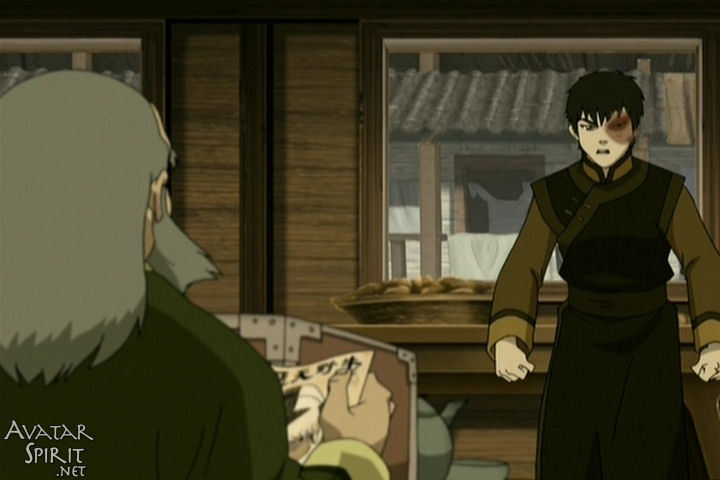
Iroh: We have a chance for a new life here. If you start stirring up trouble, we could lose all the good things that are happening for us.
Zuko: Good things that are happening for you! Have you ever thought that I want more from life than a nice apartment and a job serving tea?
yikes! zuko comes off pretty awful here. and it would be so easy for iroh to become angry with zuko’s bad attidude and to tell zuko he’s being selfish and ungrateful for everything that iroh is doing for him. because it’s pretty clear that a nice aparment and a job, safety and security, these are things that iroh istrying to achieve for zuko, even if zuko doesn’t want them for himself.
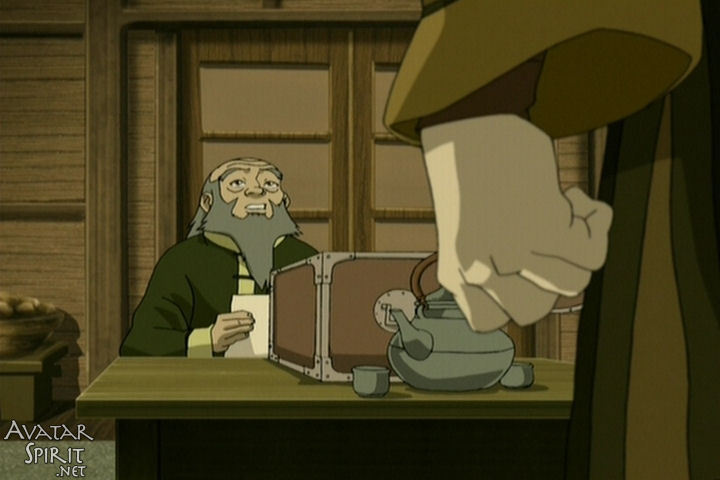
but iroh is so gentle with him here. he doesn’t take offense to zuko’s selfish attitude or his unkind words, because iroh understands exactly how hard this change will be for zuko.
for zuko, moving to the upper ring and permanently accepting a life in ba sing se means giving up on any chance of finding the avatar and returning to his home, it means losing any hope of winning his father’s acceptence. for zuko, this isn’t a lottery-ticket winning moment, but rather an abrupt transition into a frightening unknown, a change that he’s being asked to adapt to when zuko already finds it very difficult to handle transitions.
and a lot of zuko’s behavior in this moment is a trauma response. zuko often struggles when forced to adapt to a change in plans; his usual reaction to things not going his way is to have an emotional meltdown (losing his crew to zhao, being asked to change course so iroh can buy a missing pai sho tile, losing the avatar’s trail, not being able to lightningbend, ect, ect.). c/ptsd leaves you with a lot of anxiety about change, and for zuko, this move would be a huge trigger. he’s only just settled into the lower ring and begun interacting with other teenagers; he’s being uprooted just as he had begun to esablish ties, he doesn’t know what the upper ring is like, and the big kicker: all of this is out of his control, because iroh is the one now making decisions for their family. of course zuko’s going to react badly. zuko really does not like feeling out of control and he feels like he has NO control over iroh’s decision here - which directly leads to zuko taking matters into his own hands by infiltrating lake laogai as the blue spirit.
iroh takes the tea shop offer because it’s a path to an easier life, so that zuko can prosper within the only avenue iroh can offer him right now. but he knows that zuko isn’t going to see it that way. iroh can see that for zuko, this isn’t a victory but a brutal acknowledgement of his defeat.
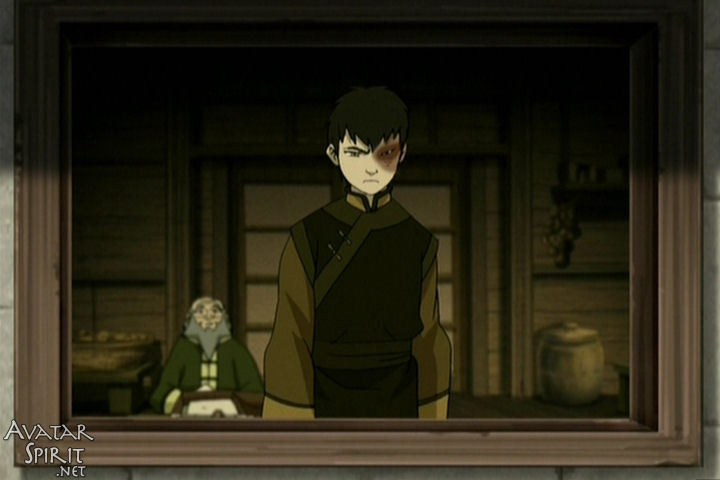
zuko never looks more than a lost child than he does in this scene. everything he’s done, how hard he’s worked, all his suffering, it seems like it was all for nothing in this moment. he’s being asked to give up everything that’s important to him. and if we the audience can see it, than iroh certainly can.
and so iroh doesn’t chastise zuko or try to correct his behavior, he doesn’t take zuko’s words personally. instead he lets zuko express his anger and fear and jealousy and allows those feelings to wash over him without reacting in kind. he can acknowledge zuko’s disappointment without letting it diminish his own happiness in his success, and it’s such a good example of trauma parenting done right.
as someone who’s graduating soon and going into clinical psych, taliesin calling fcg a “first year psych major who is clearly the problem” has me on the FLOOR like. that’s it that’s fcg’s whole deal i love it so much
like aside from asking all the stereotypical shrink questions, fcg is clearly coming at things from the angle of “i have an idea of what’s Healthy and i want to FIX people” instead of meeting people where they are and working with them to get to know themselves better and it! makes so much sense!! because they’re a robit who has been programmed to help others and they clearly have some very black-and-white thinking going on and ofc that would apply to their programmed purpose
and wrt to the moment fcg had with imogen last episode, it fits so well that they crossed a boundary without hesitation in the pursuit of that programmed purpose and honestly it didn’t seem like they were all that sorry when imogen confronted them?? and i’m so excited to see where that goes (and don’t get me started on the implications of imogen’s (understandable!) reaction to it or we’ll be here all day lol)
i’m also really excited about their existing relationship with ashton, who has also now been confirmed by taliesin to 1) not like telling anyone anything about themself and 2) like to think they know themself and really don’t. that’s just another confrontation/point of conflict waiting to happen on both their end and fcg’s end and i can’t wait aaa
i just finished “sins of the father” and like. every time that episode rips my fucking heart out, every single time, no matter what, but this time
what got me is that, during the sword fight, there are at least two separate instances where uther actually lunges instead of parrying.
uther states he does not wish to fight his son. of course, when arthur attacks, he defends his own life– that is instinct. but uther is, arguably, as good a swordsman as arthur– he is also the king, and knows leon was just outside the doors. within those two parameters, he had every opportunity to either defend himself until arthur’s anger subsided or until he could subdue arthur by other means.
like i said, though. there are two separate instances (possibly more) where uther actively goes to strike his son.
i am not in the headspace right now to rewatch, so i don’t know for certain if they were attacks meant to disarm, but i am fairly sure they were not. if i remember correctly, one of them was a true attack swing. they are not highlighted, they’re super quick, but they’re there.
which brings me to the knowledge– the not surprising knowledge– that uther would have, if he had the chance, killed his own son to preserve not only his life, but his lie.
and i know it’s… a lot to compare the actions of a fictional character with ones of real people, and vice versa. but i know narcissistic abusers well. and i know the lengths they will go to preserve their own narrative– the ones in which they are the victim, in which they are faultless, in which they are right. and, in doing so, anyone standing in their way– including their own children– is merely a casualty of war.
all i am saying is– i have been on the other end of that sword. and god, it fucking hurts.
So is anyone gonna talk about how Pamela wasn’t what Dean ACTUALLY wanted, per their exchange in Dean’s Mind Bar, but she had on a necklace with WINGS and was wearing a BLACK shirt that said “To Hell and Back Again?” Because we should talk about that.
I have a controversial opinion and that’s that Snape being horrible to his students and incredibly biased in favor of Slytherins was actually a bad cover. Because if I was a death eater, I might be wondering why the fuck Dumbledore was keeping a former death eater favoring Slytherins and abusing his favorite Gryffindors around? Like, I’m sure there are other potions teachers around. If snape wasn’t a spy for Dumbledore, he wouldn’t be potions master. So if I saw a terrible teacher who was a former death eater retaining his job despite his horrid behavior, I might just believe that Dumbledore had reasons for it and get suspicious.
If anything, Snape should’ve been an overwhelmingly neutral teacher telling Slytherins he wished he could favor them in private but would be fired if he did. Or even treating all of his students with strictness but favoring Slytherins slightly. That way it would appear like Snape was having to walk a tight line and the true reasoning for Dumbledore keeping him around really was that he was great at potions and a decent Professor.
In conclusion, being an abusive bully to non Slytherin students was actually bad for his cover.
It is bad cover in a way however keep in mind …. it was also more rumor than known fact. No student knew for certain what his past was. I mean, think about it …. if Snape was a known Death Eater do you honestly think rich pureblood families like the Longbottoms would just let Dumbledore keep him around? Not happening. It’s all speculation and rumor. The kids who know only do so if their parents knew and told them (i.e. Draco Malfoy).
So, yeah, part of it is likely to appease the DE parents but also ….. consider what Slytherin is about. This is a house that values fraternity, brotherhood, ambition, cunning, etc.. As a Slytherin, I can tell you right now one of the things I loathe is when you handle my shit in front of others. I get Snape not going at his snakes in public. He handled them in house though, he took care of it that way. The other Heads likely knew this but never TOLD THEIR KIDS. That’s where the problem lies, Snape knew how to best handle his kids based on their traits and qualities as he is like them.
When you consider it from the standpoint of the houses best reacting to certain correction methods better…. Slytherins will handle in house better than public shame. Gryffindors seem to be the public ones, call out their behavior WHEN it happens type (Neville being an exception to this -each house will have those). If Snape was abiding by that mindset, which add to it a whole lot of other factors (there is a wonderful post put there about his trauma and the impact of Harry’s year on that), the Slytherin/Gryffindor mix is really a poor choice for his classroom honestly. As it’s a mixed punishment system and gives kids a poor visual.
The original post leads to a great question; why would the other Death Eaters not remark upon Snape’s behaviour?
We could say that the Death Eaters remained unaware of Snape’s behaviour within Hogwarts and therefore couldn’t comment - but this seems an oddity given that a number of the Death Eaters appear to have students at the school, and we know for a fact that Draco was in keen contact with Lucius at various points in the series.
So, we have to look at the evidence of Snape’s behaviour - were his actions truly such an outlier, compared to the other staff, that the Death Eaters would suspect that something was afoot? Given the jockeying for position with the Death Eaters alluded to during the Spinner’s End chapter, it seems as if it can’t have been. Moreover, we don’t see any parent successfully complaining to the school about his behaviour - and instead of McGonagall rebuking Snape for his attitudes, she seems to trust his decision making, which suggests that his fellow staff members don’t particularly see a problem either.
There’s also the suggestion that Snape is a ‘terrible teacher’. He’s certainly abrasive, sarcastic, strict, and errs on the side of the terrifying in the classroom, but he’s not objectively terrible when it comes to performance metrics. His acceptance for NEWT level study is higher than Slughorn’s, his expectations for his students at OWL level is very high, and Umbridge comments that his class is advanced. He’s also a successful Head of House, with Slytherin winning the House Cup year on year prior to Harry’s arrival at Hogwarts.
Snape may not be nice or friendly, but with that context, he’s canonically a successful teacher - so there’s an argument that Dumbledore may permit him more latitude in his classroom behaviour given his students’ impressive exam results.
I think a key factor is that the vast majority of classes that we see Snape leading contain Harry Potter - and Harry is a very personal problem for Snape. Not only does he have past issues (with both Lily and James, for different reasons) - but Snape can’t really afford to show any grace towards Harry; if he had, then it would be reasonable for Voldemort to expect that Snape could influence Harry. Snape had advance warning that Voldemort would be returning, so it seems that the only logical stance for him to have was to be entirely opposed to Harry lest any other connection be exploited.
For me, I think the conclusion about Snape being 'strict[] but favouring Slytherins slightly’ is probably supposed to be his presentation, and his scenes with Harry et al are outliers.
I think it’s important to note that in Harry’s class, there’s also Draco Malfoy. In HBP, Narcissa details that Snape is Draco’s favourite teacher - and in CoS, Draco says similar himself and suggests Snape for Headmaster if Dumbledore is ousted. We can likely conclude that Draco’s reports back to his parents were favourable - so his behaviour was being interpreted as positive and not suspicious.
The fact that nobody raises a query about Snape’s behaviour suggests that whilst we, with modern eyes, may complain about Snape’s classroom behaviour, within the wizarding world of the 80s/90s, there’s no issue; Dumbledore doesn’t seem to notice or care, the staff members don’t seem to notice or care, the parents don’t seem to notice or care - and so, the Death Eaters have no basis to raise a warning sign to Voldemort.
Occlumency
On a re-read of OotP, specifically Occlumency, this passage stood out to me:
It was a shadowy room lined with shelves bearing hundreds of glass jars in which floated slimy bits of animals and plants, suspended in variously coloured potions. In a corner stood the cupboard full of ingredients that Snape had once accused Harry — not without reason — of robbing.
Harry’s attention was drawn toward the desk, however, where a shallow stone basin engraved with runes and symbols lay in a pool of candlelight. Harry recognized it at once — Dumbledore’s Pensieve. Wondering what on earth it was doing here, he jumped when Snape’s cold voice came out of the corner.
“Shut the door behind you, Potter.”
Harry did as he was told with the horrible feeling that he was imprisoning himself as he did so. When he turned back to face the room Snape had moved into the light and was pointing silently at the chair opposite his desk.
The first thing that made me pause was how the narration acknowledges that Snape’s accusation was ‘not without reason’, which seems like a strange addition. To me, it rather establishes that Snape’s conclusions about Harry are not always accurate but can be justified from his limited perspective.
More than that, I found myself fascinated by the use of light and shadow.
When Harry enters, the room is shadowy and Snape is in the dark - perhaps suggesting that Harry can’t/doesn’t trust Snape, because Snape surrounds himself by and is enveloped in darkness.
In contrast, the Pensieve is in light - ‘lay in a pool of candlelight’. We could say that this is because Harry recognises it as Dumbledore’s object, symbolic of Dumbledore’s inherent goodness and/or his belief and trust in Snape.
Or, with the benefit of hindsight, we could say that this is because Snape’s “good” memories will end up here - indicating that this is where Snape’s true motives will lie, and that this wizard who is apparently shrouded in darkness has hidden “light” depths.
This is bolstered by the fact that once Harry shuts the door, Snape steps into the light - that Snape can only show Harry his true self once they are in private. Again, with the benefit of hindsight, this is what we see with his dying gift of his memories; Snape can only reveal his “good” and his true motivations once the two are entirely alone.
Dumbledore and queer representation
If FB were to portray Dumbledore as gay openly: what do you think is the best way they can handle this issue? Is it important that he gets a non-problematic love-interest? Would it be ok if they addressed discrimination in the muggle world and portrayed the wizarding world as better? What do you think are some of the things the LGBTI community would like to see from the first major gay character in a blockbuster and what do you fear they might do to his storyline other than ignore his sexuality?
If we accept the idea that Dumbledore’s sexuality is going to be represented in the text, and it isn’t just going to be alluded to, or acknowledged in passing without being developed, then the fears I have are:
- His sexuality is treated as if it is of no consequence within society
- His sexuality is inadvertently treated as a deviancy that needs to be curtailed
The first point is comprised of the following problems:
- There’s no representation of any sexuality other than heterosexuality within any part of the existing franchise; this means there’s not simply a lack of evidence that homosexuality is accepted within the wizarding world, but an indication that it isn’t accepted
- Homosexuality in the Muggle world was criminalised during this period
- Upon rejecting Grindelwald’s ideology of Wizarding Supremacy and subjugating Muggles, Dumbledore positions himself as an advocate for a more integrated society. How does he resolve this with the knowledge that people who share his sexuality are prosecuted / imprisoned / outcast / ruined / blackmailed / can’t live ‘freely’ within the Muggle world?
I generally fear that this will not be dealt with at all. I think Dumbledore’s sexuality will be raised and treated as if it’s of no consequence. I think there will be no reaction from others, no exploration of the wider context, and in the very best case scenario, you might hear (or see in the papers) mention of a relationship between two men or two women just to establish he’s not alone.
So, my major fear is that Dumbledore’s homosexuality will occur in a vacuum.
The second point really links back to the HP series itself, and is a complaint I’ve made before. The point with this is that it’s not deliberate – but that you can inadvertently tell a story that you hadn’t intended.
For instance, it’s possible to read the Dumbledore / Grindelwald story as: a charismatic, charming and attractive man dragged Dumbledore down a dark path in his youth, and Dumbledore was only able to become ‘good’ again once he renounced the man and his beliefs. The man was then a threat and a dark shadow over the whole wizarding world until Dumbledore garnered the courage to face up to him, defeat him, and imprison him. The man stayed locked away forever, whilst Dumbledore lived a single, seemingly celibate life.
I’m not saying that the author intended to write a gay danger story - but, as it stands, there is a horrible truth that this is the closest thing we have as a representation of a non-heterosexual relationship (author intentions and what can be read into the text are not always the same thing). We have lots of heterosexual portrayals of relationships, both healthy and unhealthy – but nothing to compare this relationship to, and when something is the only portrayal, it’s damaging if it’s negative.
And there’s some awkward messaging that lurks beneath the surface. For instance, Dumbledore is presented as an influential, powerful and successful wizard who isn’t prevented from reaching his potential due to his sexuality – but he lives in a world where heterosexuality doesn’t just dominate, but is the only portrayed sexuality. Dumbledore might be homosexual, but he doesn’t utter a word about his sexuality, nobody appears to know about it, he doesn’t date, he isn’t married, he doesn’t have any relationships.
Therefore, Dumbledore is a portrayal of a non-threatening homosexual – a homosexual who is so quiet about his sexuality, it doesn’t exist. This accidentally reinforces the idea that queer people can be very successful as long as they don’t indulge, or sully themselves with a relationship, or go around pushing it in everyone’s face.
And that’s my second point – if Dumbledore and Grindelwald is dealt with as being a story of two ex-lovers (or an infatuation from Dumbledore to Grindelwald), and Dumbledore doesn’t have a subsequent shot at a healthy relationship, then are we risking seeing a story that finally brings homosexuality to the forefront of the series…and it’s portrayed as something dangerous, disruptive, threatening, and violent - which needs to be curtailed and contained?
Going back to the earlier point about Dumbledore’s sexuality being in a vacuum, is this sort of portrayal especially dangerous if there’s no point of comparison to other homosexual relationships, and whilst this tale is told, we also see positive heterosexual relationships portrayed within the text?
Here I am, back on my obsession with Dean’s clothing and able to put it to good use.
We see Dean in the trailer not looking exactly like we know him. However, we know his outfit.
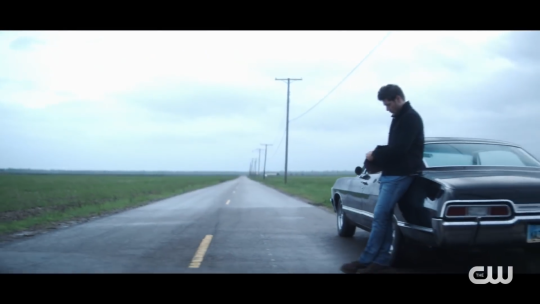
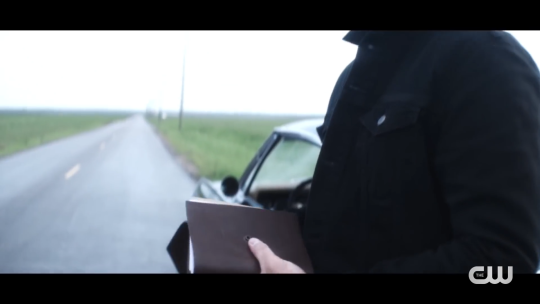
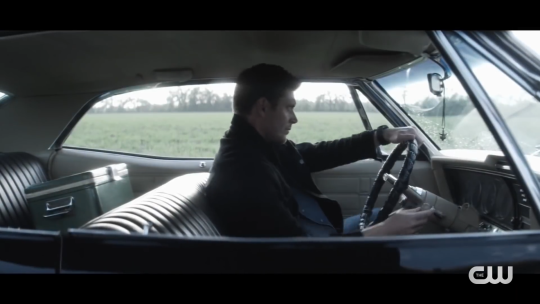
He is wearing his black denim jacket, light denim shirt and mid blue jeans. I am guessing this is heaven by the license plate but it is not his heaven outfit from 15x20.
Dean has had the jacket since s11 and wore it in s15 for
- 15x04 Atomic Monsters
- 15x08 Our Father Who Aren’t in Heaven
- 15x09 The Trap
The shirt was new for s15 and worn in :
- 15x04 Atomic Monsters
- 15x08 Our Father Who Aren’t in Heaven
- 15x09 The Trap
- 15x14 The Last Holiday
- 15x15 Gimme Shelter
- 15x20 Carry On
While they were both in Atomic Monsters (directed by Jackles himself) they were not worn together. They were worn together in 15x08 and 15x09. Yes, this outfit travels to both hell and purgatory.
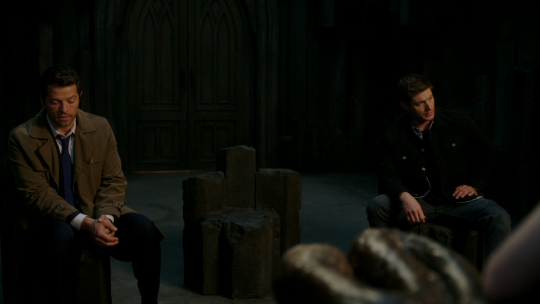

And Jensen finds it so significant that he decided Dean would wear it the first time we see him in The Winchesters.
I also want to note that it was worn in 15x04 to kill a vampire. And Dean died on a Vampire Hunt. In this case the parents were getting him human blood. They said Sam and Dean couldn’t understand because they are not parents. “We just wanted him to have a normal life”. Can’t help but think this could take on new meaning with the prequel.
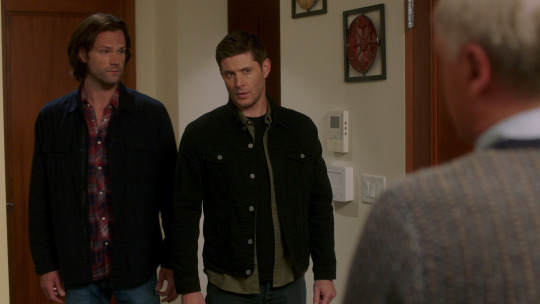
It was also interspersed with Chuck and Becky with this memorable scene
BECKY: Okay. If I had to give one note… the jeopardy, Chuck. It’s feeling a little… thin? Low stakes? It’s fun to hear the boys’ voices, but a story is only as good as its villain, and these villains are just not feeling very… dangerous? Not to mention, there’s no classic rock. No one even mentions Cas. The climax is a little stale. Boys tied up again while we get the villain’s monologue, which, frankly, isn’t one of your best. A little originality wouldn’t… hurt.
I don’t think I need to remind everyone about all the Atomic Monsters theories. “It’s awful! Horrible. It’s hopeless.” They’re not dead. They’re just away”.
The shirt I believe to be the one Dean died in. He changed into it and his death jacket for his final hunt.
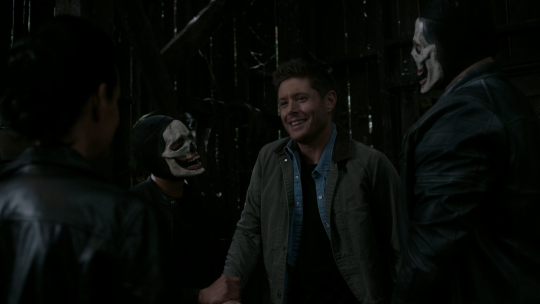
I think I might have an idea now for something I had no clue about before. I noted before on my post about Dean’s Cursed Heaven Outfit that on the video Jensen posted as he was dressing up as Dean for the last time “at least for now” he was not wearing the jacket Dean wore in Heaven. He was wearing Dean’s black denim jacket, not the heaven one.
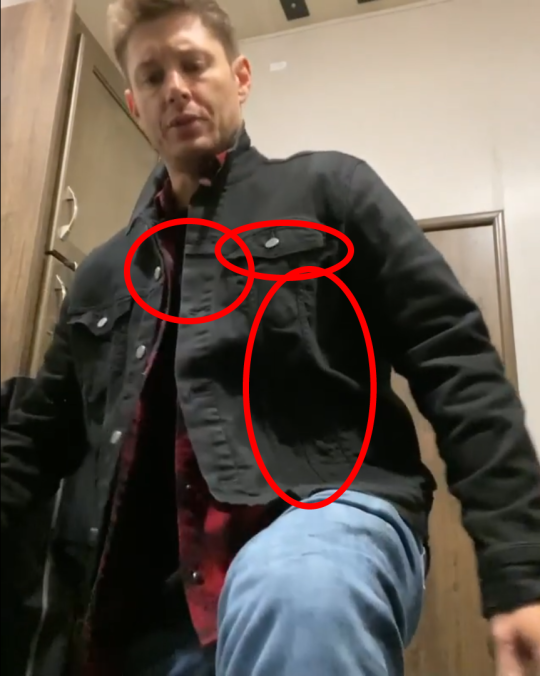
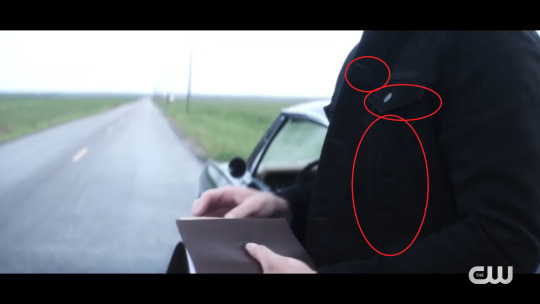
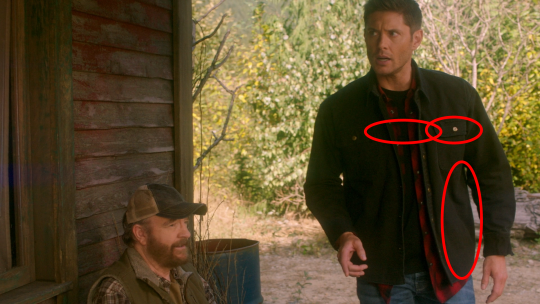
These are NOT the same jackets. The sleeves sit different, pockets are different shapes, there is not the same seams on the heaven one etc.
I could never figure out why Jensen would be dressing as Dean in a near identical outfit that we never see. Now I wonder if Dean coded Jensen managed to film something way back in September 2020 for the prequel? The scenes filmed on that final day were the roadhouse, driving and the bridge. I think it might be possible he switched jackets at some point. And maybe this was when Jensen stole it from set!
Seeing this trailer I am more convinced than ever that the prequel is somehow going to lead to a continuation.
Just a collection of random ACOTAR related meta.
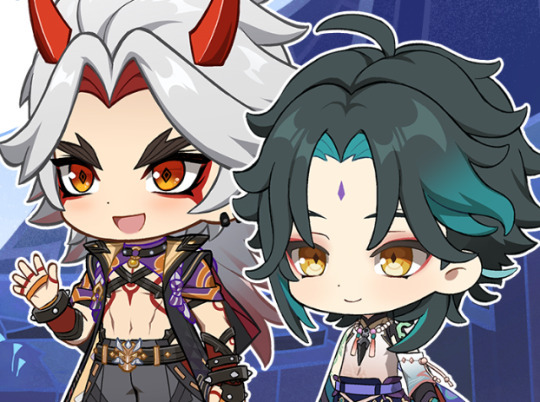
Hey-o, here are the rest of the Ittoxiao fodders that continue from Part 1. Enjoy!
Genshin Impact 2.7 spoilers below!




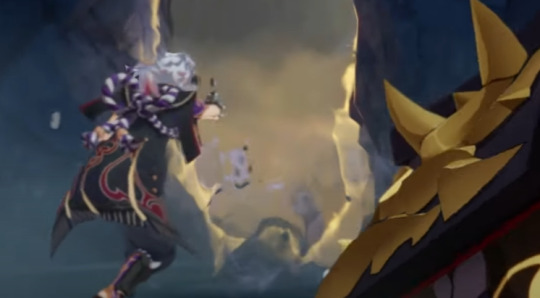






















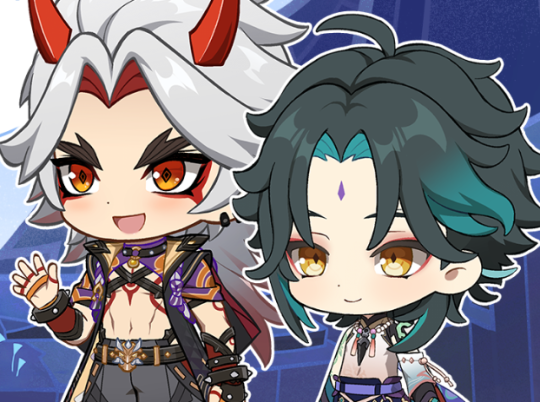
Hello, Ittoxiao nation! So, in light of all the food we got with 2.7′s chapters 1 & 2, I thought I’d make a compilation for all us shippers!
GENSHIN 2.7 SPOILERS AHEAD


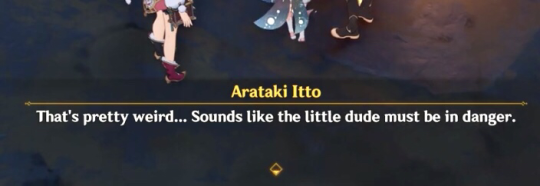
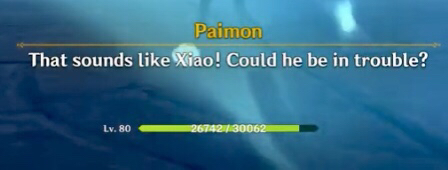
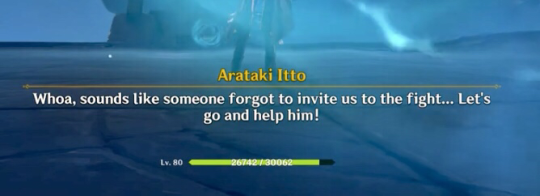

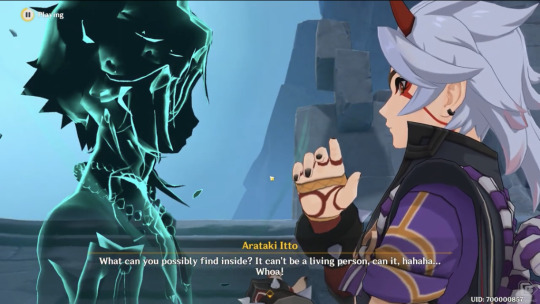

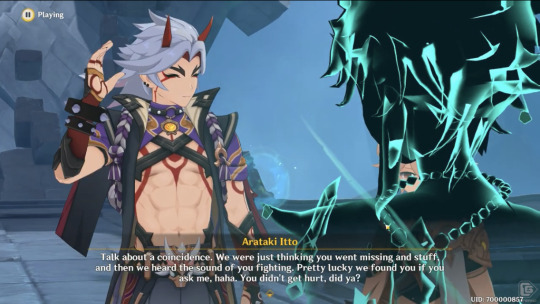

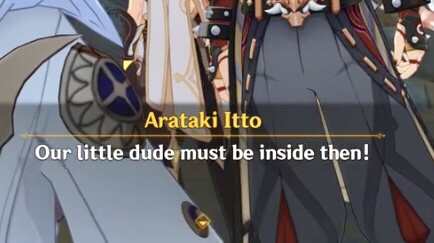


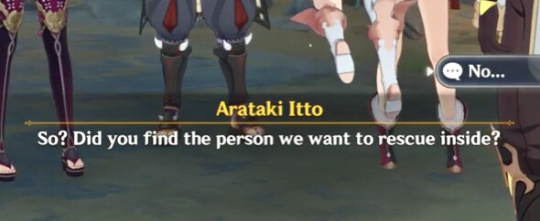

the band’s visit has such beautifully poetic lyrics. i think that omar sharif really showcases this, though a number of other songs do as well, but instead of just saying things, it engages the senses, multiple senses - jasmine wind, honey in my ear, spice in my mouth, the music flows in the garden. and then answer me???? “if i try, maybe i can see your shadow”. haled’s song about love? “two suns, no shadow” and “two streams of water that become the sea”. the dialogue from the park? “this is the park. it’s not look like a park, you have to imagine. you see, this, this is the grass. and there is where the children play. and this, this is the sea. do you hear the sea?” the lyricism is so evocative and there’s such strong throughlines and specific thematic motifs addressed again and again. they not only act as an expression of the characters’ thoughts on the basest level but engage the listener’s senses again and again. the poem that was translated into itgara’a, yazbeck wrote “when you drink, drink deeply.
drink deeply of the moonlight. drink deeply of the dark. of the loneliness. of the joy.” and the cast delivers all of the weight and reverence to these songs that they deserve. it’s just. the band’s visit is beyond gorgeous musically and lyrically. it’s deceptively simple without the theatrics of commonly seen in contemporary musical theatre, but written complexly with deep characters and themes, delivered by incredible performers. there’s one vast broad theme found in the lyrics, the plot, the instrumentation, the direction, and it’s connection, trying to connect, failing to connect, yearning to connect. the show explores each and every avenue that has to do with this theme, and it’s one of the best scores in recent memory for this reason.
(this is just me offering an alternative interpretation so shhh)
if you shift the perspective a bit and cast away protagonist bias, there’s kinda a good argument for ”izzy wasn’t right to bully lucius, but also he wasn’t completely wrong either?”
on a ship, everyone works. in piracy, everyone works. one of the big themes throughout ofmd is the idea of piracy = freedom (not toxic masculinity i will die on this hill) which does go back to historical context. it’s really interesting to read about piracy and race because although pirates were not antiracist icons breaking down structures of white supremacy, pirate culture was radically far more racially equal in comparison. people escaping slavery often turned to piracy, and there was often direct democracies onboard of black pirates having a say in votes and equal split of bounties. (piracy was not perfectly antiracist please read more about it!)
a big part of this wasn’t from the goodness of pirates’ hearts, but because being on the sea necessitated this. it’s hard fucking work to run a ship and everyone works. there isn’t time for to be squabbling about race when the entire crew is constantly doing backbreaking labor that requires cohesion. along with that, most pirates were a mixture of sailors who were so poor they turned to piracy out of necessity, or former navy officers who just fucking hated the navy and decided to rob people instead. this forms a kinda smoothing of class boundaries because, again, there’s no time to be a bitch about money because everybodyworks.
so just think about this context and think about how izzy is very obviously working class and then it kinda… makes sense that he doesn’t find lucius ”i don’t clean things!” very charming. to be clear, i am in full support of lucius being a lazy gay who doesn’t do work and this makes izzy seethe but he can’t do shit about it and this is my life goal to achieve. butlucius is the only crew member on the ship who doesn’t do physical labor. and he doesn’t have to, he’s a scribe not a sailor, but this is a job that is born from class privilege that nobody else on the crew (other than jim) can hold because nobody else can read.
izzy is too strict and izzy is annoying, but he is consistent. (no, the hoisting the anchor was not supposed to be racially coded btw, wee john’s actor just has a bad back) everybody gets specific duties and everybody works and everybody agrees to that except for lucius who only takes orders from his rich boy captain. he doesn’t pick on lucius because he’s more feminine than black pete, it’s just that black pete shuts up and agrees while lucius goes sketches fang’s cock (icon icon icon)
it just? kinda makes a lot of sense that it pisses izzy off so bad when you consider the class dynamics at play. lucius is definitely not some super rich aristocrat! we know he did some pickpocketing back in the day (and it was not cute) but there is a certain level of class privilege necessary to have the skills that he does. the hardwork of piracy and running a ship is an equalizer where it doesn’t matter who you are, who you know, or who your daddy is: everybodyworks.
and having that blatantly disrupted and disrespected? and by some seductive twink with pretty lips who asks if you’ve ever been sketched and oh my god no you have not but what if––no no, you shant. all you can do is tell him to fuck off.
Great points. I also want to add that Lucius *does* work. He is the scribe and follows Stede around transcribing everything as well as acting as a general assistant (helping him dress, going to the market with him, fetching the special shovel)
But it’s not work that Izzy isn’t familiar with or acknowledges or appreciates. He just sees Lucius not doing the stuff he’s ordering him to do. (Which fair, Lucius was purposely pulling a ‘you’re not my dad’ card)
It’s very likely that Stede told Lucius he had certain duties, and didn’t have to worry about certain duties, whether that’s fair or practical or what have you. I also have the headcanon that Lucius’ back really is messed up more than just the average gay back pain, and he needs to be able to write so Stede didn’t expect him to do all the tasks that Pete or Frenchie might do for instance.
So Lucius does work, but not at typical pirate stuff, and especially not when not working pisses Izzy off.
mmm i understand where you’re coming from, but i think that falls back to an extension of stede’s own class privilege. adore lucius to death and i think being a snack should be a good enough excuse to give him a job, but none of the work he does is beneficial to anybody but stede. all of it is also things stede can do himself (write his own journal, dress himself, fetch his own shovel.) lucius is acting as close to a “middle class” position we can really get in the 1700’s where he is working, yeah, but very little helps the others and really only incidentally. it’s also work that only lucius can do and only because of class privilege.
in terms of his back, topics around ability are nuanced especially when thinking about what makes someone “productive” but even if lucius has a bad back he’s still operating in a realm of privilege that the others are not. manual labor hurts your body. the work the crew is doing as a whole is actively disabling, but they don’t have the privilege to opt out of that labor. more likely than not, they all have similar pains if not worse, especially since a lot of them are a bit older than him and have been doing this for decades. that doesn’t mean it’s right to make lucius do work that pains him, but it’s not a shock that izzy and others probably aren’t very sympathetic towards it.
even then, there’s work lucius can be doing that doesn’t strain his back since i get the impression that it’s more of a “twist it wrong and it hurts” type of thing even though alternative headcanons are fine! it’s not that lucius is incapable of doing it though, it’s that he’s unwilling to (“i don’t clean things!”) the type of job he does is also one that doesn’t take up much time where he’s more likely than not doing less than two or three hours of work a day and lazing around the rest (again, i want to be him so bad it makes me sick.)
but also? if lucius doesn’t scrape the barnacles that’s fine, but someone has to do it. it’s not a bullshit job either or for aesthetic purposes. barnacles harm the ship, slows down their speed, and increases fuel costs. the job doesn’t disappear when lucius slinks out of it, it just means that probably frenchie or black pete will end up with it. in the end, whatever work lucius doesn’t do (or anyone for that matter) means others have to pick up the slack.
anyways i’m talking too much so sorry bdjddjjs but like? i wouldn’t say it’s work that izzy isn’t familiar with the work, it’s that the work lucius does almost exclusively benefits stede and that’s not gonna fly here.
Oh fuck yes THIS
People really stress Izzy going after Lucius because he’s gay, or he’s not masculine in the right way, or he’s emotional, and like he is those things, but the reason that he’s those things is because he’s symbolic of the extreme end of Stede’s - still developing! - leadership style, just like Izzy represents the extreme of Edward’s traditional abusive piracy (but crucially not pure toxic masculinity) approach. And another MAJOR part of that symbolism for Lucius is the fact he uses education he must have gotten from an upper middle class background to do a fake job that only exists to bolster Stede’s ego.
Because the weaknesses of Stede’s approach include frivolity and ego. (And laziness / lack of skill but those haven’t really been put forward as clearly as problems. Yet. I’m hoping.)
Of course Izzy goes after Lucius in the B-plot devoted to smashing wildly incompatible extremes against each other. He’s everything Izzy can’t stand about this crew even more than Stede is. He’s a standard pirate laborer who doesn’t even have rank, and he does nothing of value. Making him contribute is a symbolic and practical Step 1.
And because I’ve watching Black Sails… I can’t help but compare this situation with Dufresne in S1. Dufresne is an accountant. He has a real job, massively important to the crew, but it mostly involves reading and writing in logs, and doing math. Meaning he’s got a very cushy position. He’s not a fighter, he wears glasses and looks like a clerk.
And when the crew needs all hands on deck, Billy gives him a pistol and tells him he’s going over in the boarding fight just like the rest of them, lack of combat skills be damned. Nothing Dufresne says can deter this, including putting a literal dollar amount on his contributions to prove he’s worth more alive than any other crewman on the ship. Because it’s about fairness, and everybody does it at some point.
I’m just saying… Izzy isn’t even risking Lucius’s life. He wants him to clean. And while he’s being an ass about it (extreme end of the scale) the desire itself or choice of target does not need bigotry to have prompted it.
As I’m working through Black Fleet Crisis, (I’m on chapter 11 of Before the Storm) so far the parts I’ve enjoyed the most have been the Solo family bits, coupled with the awareness of Leia’s parentage within the political machine.
This is a more ‘political’ book than many of the ones I’ve read thus far in my reread of the 90s EU, and characters like Ackbar, and Admiral Drayson, fleet commanders, and so forth feature more prominently than they have in past books which have focused more prominently upon Leia, Han, and Luke outside of Imperial characters which may be unknown previously, but play a significant role.
But in chapter three, there’s a part that just doesn’t really mesh for me. Cause Chewbacca says he needs to go home, and Han’s first response is ‘who is going to help me put the Falcon back in order’, and okay, so, in some ways that’s pretty typical Han - think of himself first, and not other people. But it also feels more like ANH Han, not so much RotJ Han, and this is a Han that’s lived a good decade beyond RotJ, and had family and kids, and has been shown to be pretty decent at all of those things. Leia punches him, and he comes around, but the initial response being the ‘hey what about’ rather than that coming later as a jokey response, kinda rubs me wrong.
Chewbacca then asks to take the Falcon and Han balks at that, but that feels more realistic to me, than him balking at Chewbacca going in the first place.
But what really kinda irks, is he and Leia have this whole conversation right in front of Chewie as if he were a child, or not as sentient (which, fuck that) including the following exchange:
“Han, come on! You should lend him the Falcon.
“Well, I don’t want to,” Han said, getting to his feet and pacing nervously. “I don’t want her bouncing around hyperspace without me. I want her where I know the worst thing that can happen is that some overeager mechanic with a torque wrench will come along and tighten all the connectors to spec. And you know how Wookiees fly – he’ll redline it the whole way there and back.”
(The best part of which is Leia ending with “And you wonder why Jacen gives us a hard time.”)
But this feels, decidedly lacking in trust of Chewbacca, which doesn’t feel representative of their overall relationship, even as far back as the OT and it bothered me as really Out of Character for Han, even though I’d really enjoyed his characterization else where in this book.
New Link for TJLC-era Sherlock meta
hey guys, at some point over the last few years Google Drive had an update that makes the old link to the drive not work – basically if you use the old link I have to manually approve every single person who tries to get access
Please use the new link:
That should work for everybody!
The drive has everything I could save from @loudest-subtext-in-tv (including M-Theory) a few gems from @heimishtheidealhusband (like the brilliant and still relevant “Ghost Stories are Gay Stories” and essays from other people who were active at the time.
I still think that according to the show we watched, Johnlock is canon. It’s just too bad that the only two people who didn’t realize it were the showrunners
Please spread this new link around and tag anybody who you think might want to read these great metas!
@victorianpining@inevitably-johnlocked@yorkiepug@sarahthecoat@sussexbound@havetardiswilltimetravel@alexxphoenix42
hey I had unshared the TJLC archive folder but I just put it back up
https://drive.google.com/folderview?id=0B-R0-ikRKha4Si1rUnF6WHBmRG8
This is so cool!! I love you so much!! You are such a kind and helpful person!!
Check this out guys, it has a bunch of stuff, not just my old stuff! Also keep in mind wrt old theories (mine or anyone’s) that a lot of people’s ideas changed over the years, so you can try to track down the people who are still around and see what’s changed for them, if anything. ✌️
Sometimes it’s fascinating to me what people consider to be an unfair/black-and-white/extreme interpretation of a character.
Specifically in this case, my interpretation of Feanor is basically that he is a clinical narcissist. Full-on Narcissistic Personality Disorder, if the Silm were in the modern day his kids would be some of the top posters on r/raisedbynarcissists. He absolutely treats his kids as extensions of himself, that’s classic narcissistic behavior and frankly depressingly common. It’s not an extreme or unrealistic interpretation, it’s something that happens all the time in real life.
Look at the symptoms the Mayo clinic lists, Feanor basically exhibits every single one of them:
- Have an exaggerated sense of self-importance
- Have a sense of entitlement and require constant, excessive admiration
- Expect to be recognized as superior even without achievements that warrant it
- Exaggerate achievements and talents
- Be preoccupied with fantasies about success, power, brilliance, beauty or the perfect mate
- Believe they are superior and can only associate with equally special people
- Monopolize conversations and belittle or look down on people they perceive as inferior
- Expect special favors and unquestioning compliance with their expectations
- Take advantage of others to get what they want
- Have an inability or unwillingness to recognize the needs and feelings of others
- Be envious of others and believe others envy them
- Behave in an arrogant or haughty manner, coming across as conceited, boastful and pretentious
- Insist on having the best of everything — for instance, the best car or office
At the same time, people with narcissistic personality disorder have trouble handling anything they perceive as criticism, and they can:
- Become impatient or angry when they don’t receive special treatment
- Have significant interpersonal problems and easily feel slighted
- React with rage or contempt and try to belittle the other person to make themselves appear superior
- Have difficulty regulating emotions and behavior
- Experience major problems dealing with stress and adapting to change
- Feel depressed and moody because they fall short of perfection
- Have secret feelings of insecurity, shame, vulnerability and humiliation
Like, yes Feanor was actually extraordinary and talented and etc., but he clearly did not have the slightest ounce of humility or self-awareness about his own limitations. People throw around “good” and “evil” like those are categories you can meaningfully sort whole people into but I’m not arguing for either, just saying that Feanor was terminally self-absorbed and suffered from a crippling case of Main Character Syndrome.
Do I think his childhood/Finwe’s parenting (or lack of) had something to do with it? Sure, but by the time he was an adult, married, and considering having children he should have gotten his shit together. You can’t tell me Valinor doesn’t have therapy (hi Este!) or that none of the elves who were born at Cuvienen and/or made The Great Journey lost parents.
That click when you finally realize that the classic D&D party isn’t based on the Fellowship of the Ring, it’s based on Robin Hood and his Merry Men.
People point to the Fellowship all the time as the archetypal D&D party but it really, really doesn’t fit. They’re all princes, well-educated landed gentry, and one literal angel, except for Sam who is very clearly marked as working/servant-class even as Tolkien interrogates the value typically assigned to that social status. There’s nothing accidental about the membership except in a very clear Divine Providence way. Aragorn, Legolas, Gimli, Boromir, and Gandalf are all experienced warriors and travelers; this is basically an escort mission centered on Frodo and the Ring, with everyone else as either psychological or combat support. There’s nothing rag-tag about them; they begin the journey well-supplied and are regularly resupplied by the governments they encounter.
Meanwhile, Robin Hood! We’ve got our chaotic good hero of secretly noble birth, the bard, the cleric, the bruiser, Maid Marian fills in as The Girl, they all have various escapades and adventures. They’re a ragtag band who meet by chance with no particular significance to their association. They live on the margins of society, making a living off theft and poaching. Depending on characterization and storytelling choices, they can be anywhere from the murder-hobo type party to politically involved revolutionaries.
And Robin Hood has a much longer history in pop culture! I really think this is one of those misattributions like the way a lot of pulp fiction tropes get attached to Tolkien’s work even though it doesn’t actually fit, because people aren’t familiar with the actual source material.
I’m deep in research mode so I’m currently digging a lot of Clone Wars-era source materials at once and along the way it hits me the funny realization about Mandalorian training sarges. Like, I knew this fact for years, but having this knowledge collated with other data makes it plainly visible how Clone Commandos were special compared to common troopers and ARCs. Not only in how their training was structured differently but also they are like one of few clones who actually get officially their (nick)names way before it became the norm (with a clear Jedi influence there).
I mean, Legends sources, especially around 2002-2005/6, were quite consistent that before Geonosis, clones rather did not have a proper (nick)name. Kaminoans considered names to be a weakness - something that changed after Jedi and clones started working more closely together and ARC-17 took over training the future clone officers (x). This approach against names (individuality) mostly touched the common troopers (mass trained) but also Advanced Recon Commando (personally trained by Jango Fett). And then we have Mandalorian training sarges like Kal Skirata and Walon Vau - men with a very different training methods and approach to their trainees - who apparently decided to fuck that rule on the spot.
As Prima Guide states, Vau literally gave his Delta Squad - and logically assuming all subordinates - nicknames (or a full Mandalorian name, at least in case of Atin) so they have a sense of uniquenessandimportance

which is pretty much the opposite of what Kaminoans originally wanted.
So it is really hilarious in insight, because whatever we could say about Kal Skirata and Walon Vau - and there is plenty to say about both - they came to Kamino, got bunch of little clone cadets who were meant to be obedient and expendable and totally disagreed with Kaminoans take on clone troopers individuality and were like,
No names for clones? We are gonna fixthat.
And this is both sweet and hilarious at the same time.
Sweet because even if names were clone commandos’ private secret, something to share only with the closest brothers and training sergeants (x), they had the names, identity, something personal and just theirs outside of Kaminoan control.
Hilarious because trust Mandalorians to be a bunch of stubborn individuals who most likely were the biggest thorn in Kaminoans side for like eight to ten years (and Jango apparently not helping much in that regard).
thinking affectionately of the m9 today :) Happy end-of-campaign anniversary to a bunch of rowdy distrustful chucklefucks with fake names up the wazoo who ended up, among other things:
in a circle on a memory wiping island, telling each other true facts, trusting the others to keep them safe. flinging platinum at scary beasts. getting banned from libraries. becoming pirates. getting banned from a pirate town. pissing off their neighbors with a glowing tree on their house. accidental heroes of a nation. saviours of some lost little kids. a buncha jerks bullying a foreman. flinging themselves into, in front of, and after danger for each other. drawing dicks everywhere. pestering enemies into becoming friends. pulling off(?) absolutely terrible and disastrous heists. attending shitty dinners. reading smut in tunnels. eating food together. being certain the world was going to end. saving it anyway. being kind of shitty. being better.
and maybe, most importantly, who ended up being happy. And better. On a pirate ship at sea, at a crowded dinner in a warm house, surrounded by family, surrounded by breakthroughs and fruits of labour, surrounded by loved ones, by warm flowers and life grown by bare hands. Surrounded by a world they saved, sure, yeah. But. These often unhappy, flawed people, who saved each other. Who saved themselves. Who have a glowing tree house in Xhorhas and a vacation spot on Rumblecusp and a magical tower full of cats. And each other.
they saved the world, they saved themselves, they saved each other, these trainwrecky distrustful little gremlins. happy one year anniversary :’D
